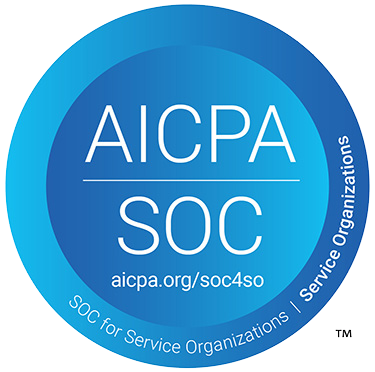The impact of job interviews on a company’s brand is far-reaching and long-lasting
Impressions last forever. Nowhere is this truer than in a job interview.
After all, the first time someone interacts with your company in a formal setting—outside being a customer —is usually during a job interview. That’s why it’s so important that every candidate has a good experience whether you hire them or not.
Each and every one of those candidates will leave with a gut impression of your company, and these days, they inevitably discuss those impressions online. Nothing spreads faster than the story of a negative job interview experience. It’s doubly critical to pay attention to this because employer brand image is one of the keys to attracting and retaining talent in the first place. In fact, research shows that the “image of employer” is the third most important factor when choosing an employer.
Simply put, people want to work for brands and people that they like and trust. Moreover, they live in fear of being stuck at companies that they don’t respect, doing jobs that they hate.
All candidates watch out for “red flags” about a prospective employer during interviews(1) — how could they not? Many of these red flags relate directly to issues raised during the interview process: Was I treated with respect? Did the person asking me questions seem like they knew what they were talking about? Was I given adequate time? Was I focused on and seen? Were the questions I was asked appropriate for a job interview?
When an interview runs short and the interviewer seems unprepared or asks potentially illegal questions, or when the atmosphere feels chaotic and unplanned, your company’s image suffers. This isn’t just speculation. The Human Capital Institute conducted a survey in which they discovered that 60% of job seekers report a negative candidate experience with the employers that they engage with.(2) That’s six out of ten candidates out there spreading bad news about your company—often to the people you need most: talented and skilled prospects in your field.
A good interview takes time. The problem is, these days, with more job openings than candidates, HR administrators are often forced to ask department heads and team leaders to share the burden and handle more of the interview process. That busy coworker with a full workload of their own doesn’t always have the bandwidth to adequately take on this trying task.
Nevertheless, it needs to get done.
Desperately Seeking Feedback
For a positive, productive experience, an interviewer must be prepared. At a bare minimum, that interviewer has to have a system—what to look for in a resume, questions to ask, what responses to listen for in order to gather useful information toward making an informed hiring decision.
The statistics reveal the crux of the matter…
72% of job seekers report that they share their negative experiences online.(3) That’s a pretty negative impact on your brand, considering that 55% of job seekers report avoiding certain companies after reading negative online reviews.
By the same token, over 70% of job seekers say that they want feedback ASAP, and more than 60% report that receiving feedback during the interview process would make them more inclined to apply to future jobs at that company, even if they do not receive a job offer the first time around.
In other words, in the hiring process, there is a direct correlation between brand perception and timely feedback.
That’s why it’s imperative that your company captures the right qualitative and quantitative information quickly, in order to share what an interviewer liked about a candidate—and share objective gaps based on the requirements of the job description.
Even though you and your HR department may be rushing to fill positions, your interviews still need to provide a good experience that protects your brand image. In addition, those interviews need to be productive, and result in an optimal hiring decision. This means a structured process that captures actionable information about the candidate, and makes up for any lack of preparation or inexperience on behalf of the interviewer.
Interviewers also need to focus on the candidate, to make them feel seen and heard, whether that interview is taking place in person or virtually. With an interviewee’s permission, the conversation can also be captured, summarized, and shared with all relevant parties, reducing the need to take notes and letting interviewers pay more attention to the candidate. Structured interviews combined with captured discussions will always provide more meaningful, accurate feedback and help result in a better hiring decision.
There’s no such thing as perfect feedback, but you want to deliver a timely, respectful opinion that won’t make a candidate feel too disappointed if they aren’t getting the job. It is equally important that candidates who remain in the running do not start cultivating unrealistic expectations, especially if it’s still early in the game. The right questions will always lead to a good assessment of fit, so that the recruiter can either tell them….
- “We’re going to have to pass, but we’ll definitely keep you on file for other opportunities that match your skills.” Or….
- “Hey, here is where you’re a good fit, but here’s where we think things are not perfectly aligned.”
Asking the right questions and accurately capturing responses enables the organization to both make better hiring decisions and to be more honest and direct when passing on a candidate.
Toward this, HR can help provide structured questions and a way to capture feedback, ideally within an easy to use software app that supports both remote or in-person interviews, which will help evaluate the candidates in all the right areas – hard skills, soft skills, culture fit – and provide insights to help make better, unbiased hiring decisions. (For an example of such a system, check out www.hirelogic.com)
And if things do go off the rails and a candidate publicly complains, what can you do?
You can’t always publicly address complaints, but when you can, you certainly don’t want to be argumentative—that won’t help your case. Your best bet is to reach out to that candidate and see what you can learn toward improving things. If you can, respond, publicly, demonstrating to all that you at least want to know what you did wrong and how you can better the situation going forward.
In the end, the only real way to counter a bad impression is to make many more good ones.
Improve your interview experience and efficiency with Hirelogic:
1. Ensure interviewers always seem prepared, even if they aren’t, with interview guidance
2. Improve engagement with candidates by focusing on them, with instant transcription and easy note taking
3. Get instant interview and candidate insights after the interview
Click here to try HireLogic for free now
Sources:
(1) https://www.careercontessa.com/advice/how-to-recognize-a-bad-workplace/
(2) https://www.hci.org/blog/statistics-rethink-your-candidate-experience-or-ruin-your-brand
(3) https://www.prnewswire.com/news-releases/new-data-reveals-84-of-talent-is-job-hunting-yet-60-believe-companies-are-failing-to-get-hiring-right-301474585.html
Photo by LinkedIn Sales Solutions on Unsplash




